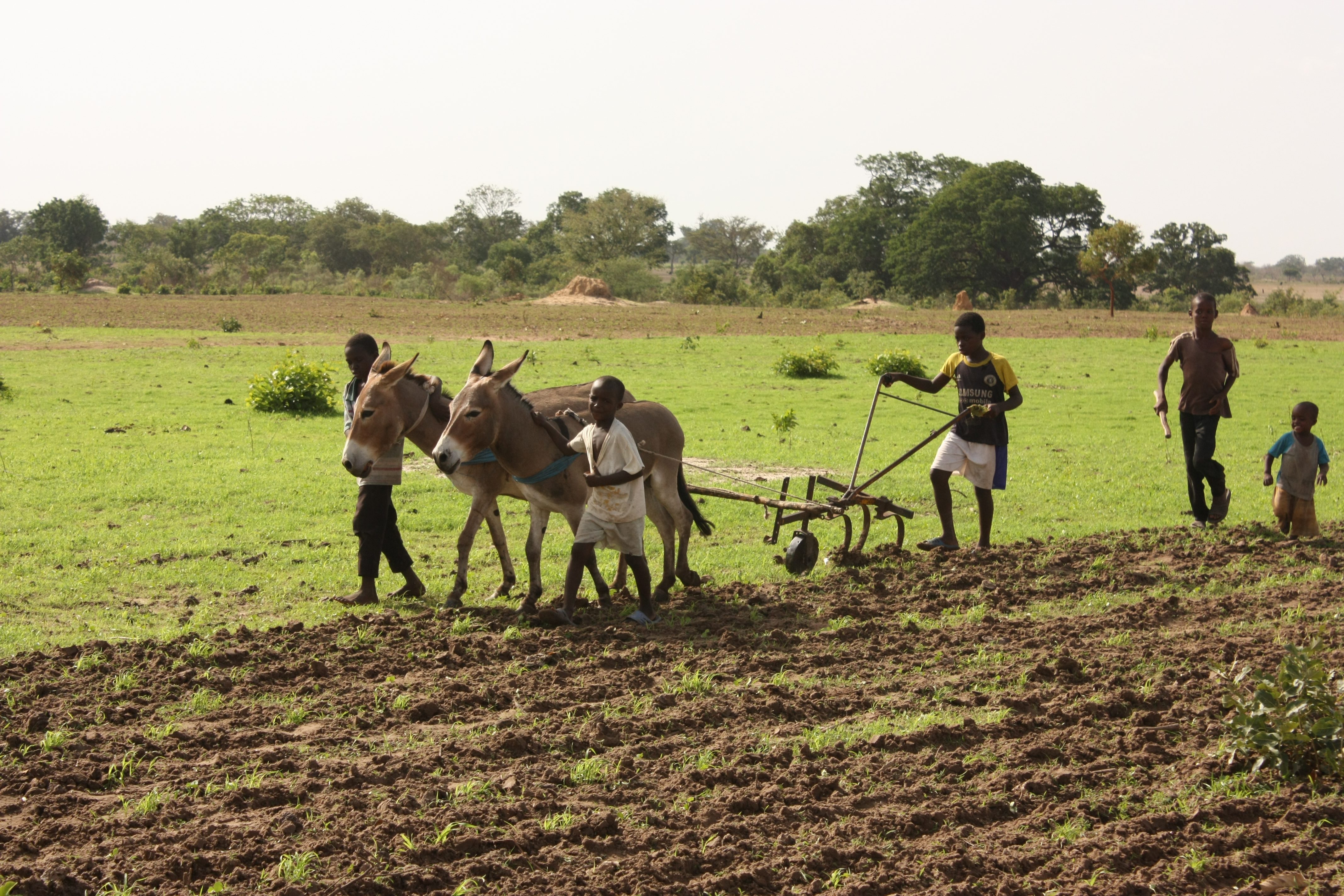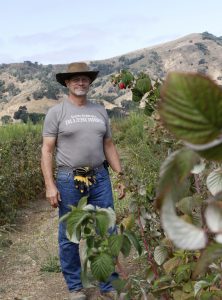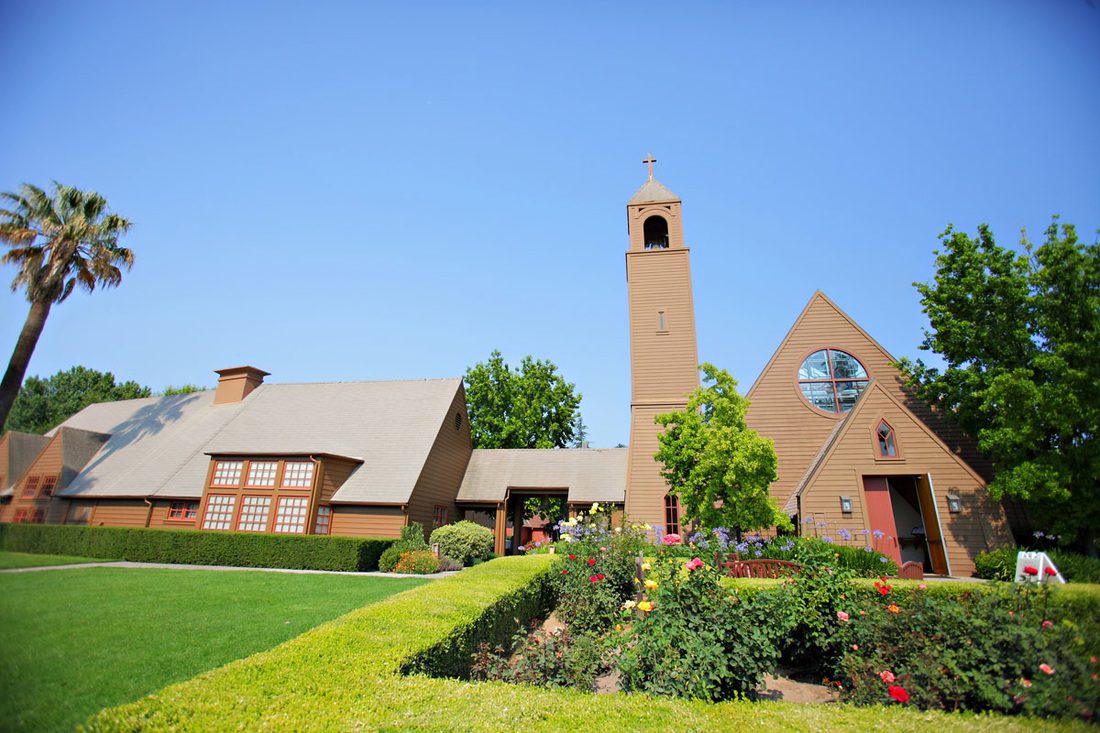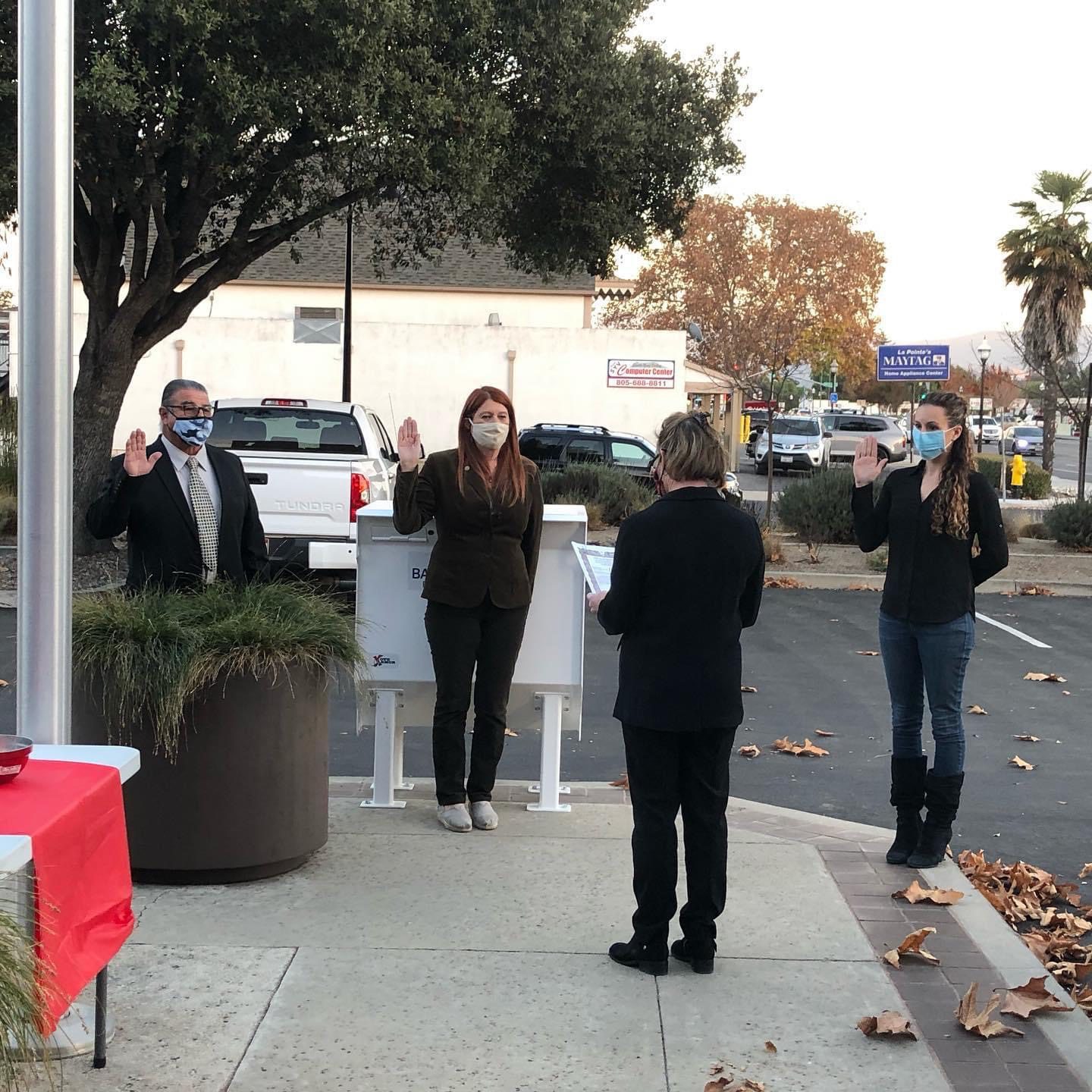By Raiza Giorgi
publisher@santayezvalleystar.com
Photos Contributed
Helping people in impoverished areas create agricultural opportunities is the top mission for Ed Seaman of the Wild Farmlands Foundation, based in Gaviota.
Through a family friend years ago, Seaman and his father-in-law were connected with Barnabas Mwesiga, who has that same passion to bring better agriculture to his home country of Uganda.
“Barnabas is teaching people about farming and ecosystems in Uganda, similar to what we’re teaching people here in California. The difference is, Barnabas is doing it to keep people from starvation. Here, it’s a lifestyle,” Seaman said.
Seaman’s efforts for Uganda are called the Barnabas Project, and he’ll host a fund-raising dinner for Mwesiga on Sept. 15.
Mwesiga is a famous former player for the Ugandan national soccer team. He also was a coach for the Sports Outreach Institute founded by Russell Carr, who graduated from Westmont College in 1956. Carr and Seaman’s father-in-law, Rolland Jacks, were longtime friends who helped make the connection, Seaman said.
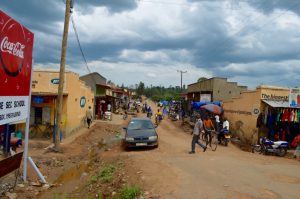
“Barnabas is teaching people about farming and ecosystems in Uganda … to keep people from starvation,” said Ed Seaman of the Wild Farmlands Foundation.
Mwesiga and the Migisha Farm are in the rural Mbarara District of Uganda. Mwesiga uses his 90-acre farm to teach local people how to raise food and cash crops and get them to market. His effort is giving people hope and building local economies.
“He has the same passion we have and is able to do things that are extraordinary and make a difference in people’s lives,” Seaman said.
Migisha means “blessings.” The farm has a producing half-acre banana grove and two tilapia-stocked fish ponds along with 200 mature eucalyptus trees used for construction. Chicken and pig-raising projects are in various stages of development. There are some cattle on the land. Other crops include garlic, onions and Irish potatoes.
Annually, Seaman hosts a dinner at his family’s Restoration Oaks Ranch in Gaviota to raise money to help Mwesiga and his nonprofit organization.
Local people know the property as Santa Barbara Blueberries, where they can pick their own blueberries, raspberries and blackberries from late spring to fall.
Seaman created the nonprofit Wild Farmlands Foundation. His background was in technology and marketing, but he had a passion for agriculture and an appreciation of how hard farmers work to provide food. He also saw a problem of people not understanding the importance of small farms, not only in the United States but all around the world.
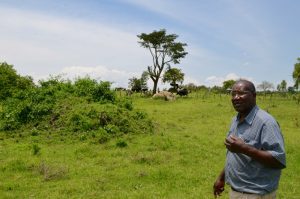
With funds raised by the Wild Farmlands Foundation in Gaviota, Barnabas Mwesiga has been able to obtain a loan, train workers, build a reservoir, fence his fish ponds, and complete other repairs and projects.
The Wild Farmlands Foundation has set out on a mission to educate and inform everyone, especially youth, about the value of small, independently owned farms and ranches to food systems and their importance to a healthy earth.
In the past the event has typically been a dinner, which features a meal made with recipes from Uganda and surrounding African countries. The entertainment has been music in the style of African songs and instruments.
This year’s event will be a little different, without a seated dinner. Instead, food will be served but people will be encouraged to get moving and dance to the music.
Seaman wants people to experience the tastes and sounds of the part of the world they are helping.
“We feel like we have an impact, even as a small foundation, in a part of the world few of us can imagine. It gets us outside of ourselves to think about agriculture in a new way,” Seaman said.
The dinner will take place on Sept. 15 and the tickets are $75 per person. The evening will include drinks, heavy hors d’oeuvres and a presentation on the projects happening in Uganda.
With the funds Wild Farmlands raised in 2017, Mwesiga was able to obtain a loan, train workers, construct a reservoir, fence the fish ponds, and complete other repairs and projects around the farm.
In 2018, Mwesiga continued to expand the work on his farm and in the community by focusing on garlic as a cash crop, the tilapia ponds, and raising then selling or trading cows, pigs, goats and chickens.
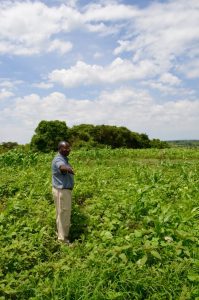 “My hope is that we can raise funds to bring Mwesiga here next year and give him more education that he can take home and apply to his country. It’s people like him that are really changing their community,” Seaman said.
“My hope is that we can raise funds to bring Mwesiga here next year and give him more education that he can take home and apply to his country. It’s people like him that are really changing their community,” Seaman said.
Farming is more than just growing food for Seaman. He believes it saves the planet because, as farmers rotate their crops and disc their fields, they help lessen the impacts of carbon dioxide and climate change.
“What better way to save the planet than by farming it and growing good-quality food and providing for the local economy?” Seaman exclaimed.
For more information on Wild Farmlands Foundation or the Barnabas Project, log onto www.wildfarmlands.org.

